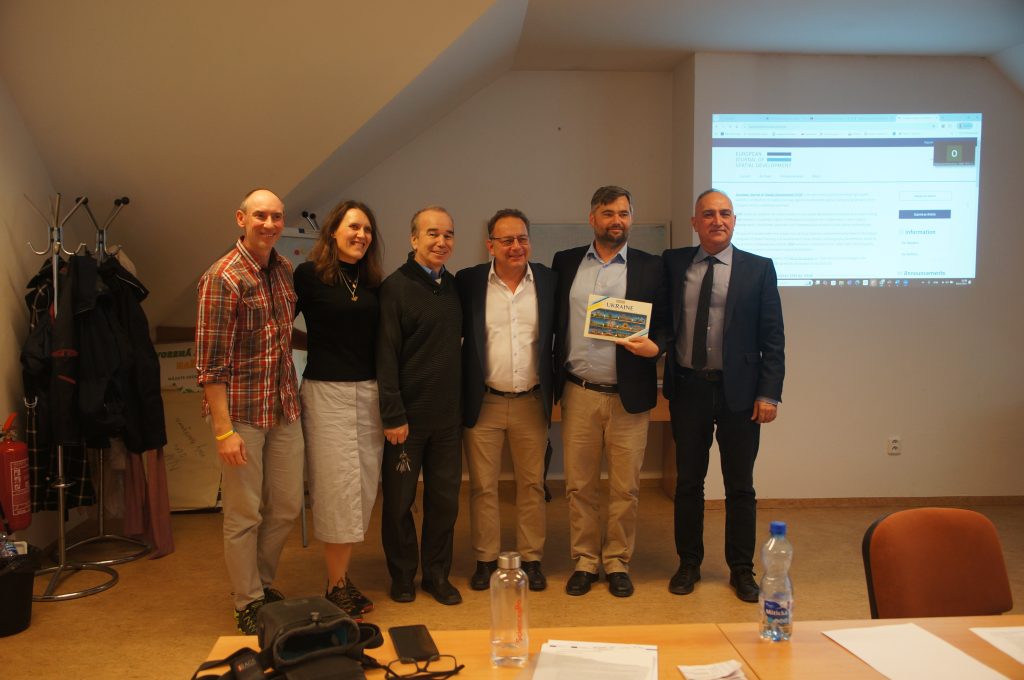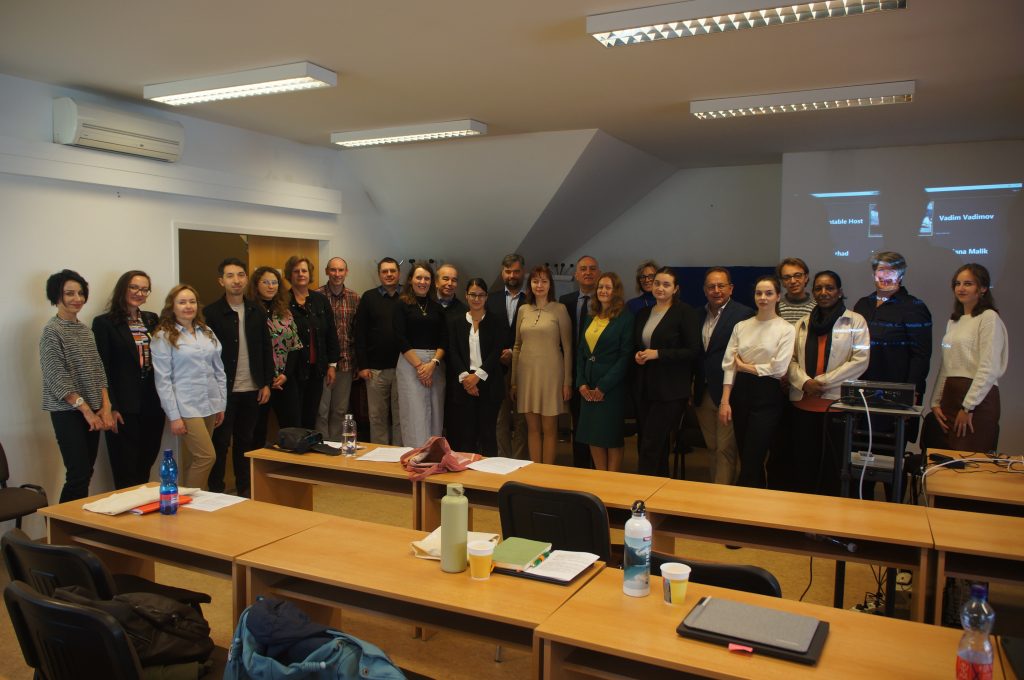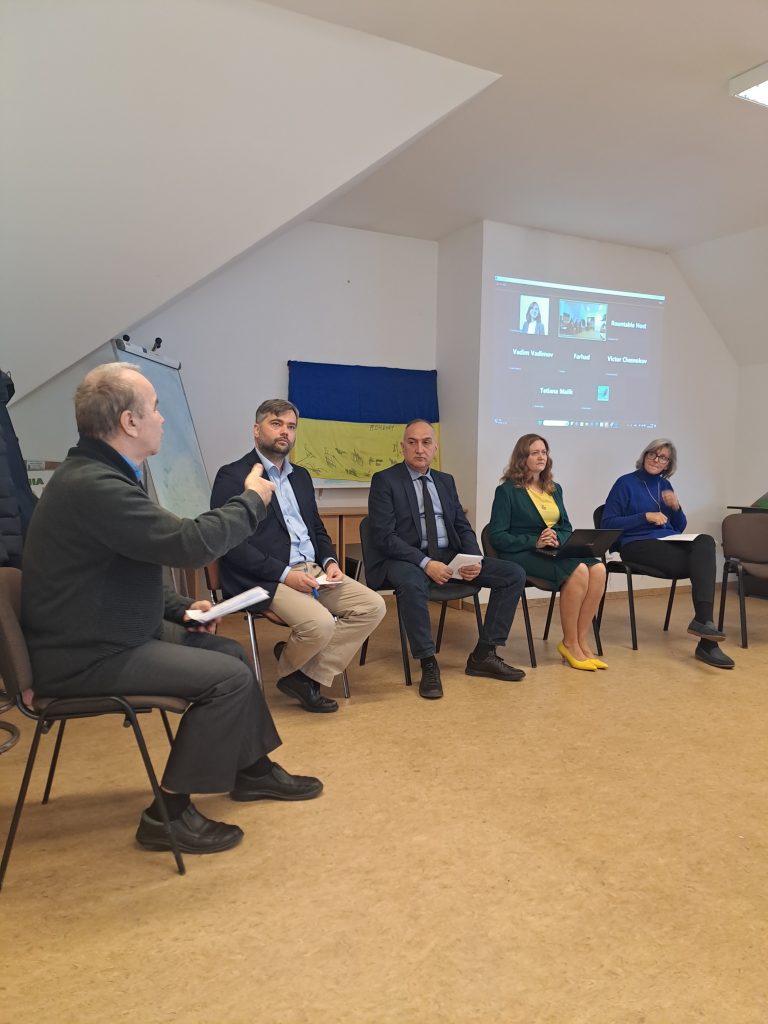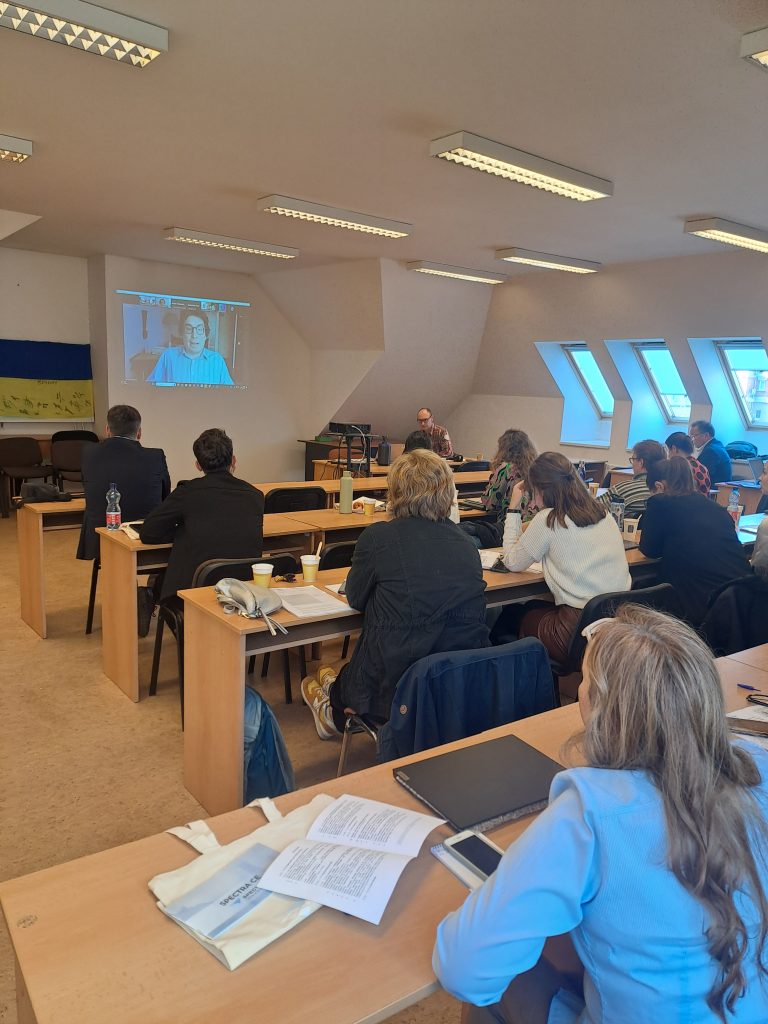The roundtable titled “Inclusive and Cohesive Urban Development in European Cities: European Reflections and Learnings for a Post-War Urban Planning,” held on October 18, 2024, at the Institute of Management of Slovak University of Technology in Bratislava, represents a crucial forum for examining the challenges and opportunities arising from post-war urban recovery efforts, with a specific focus on Ukraine. Organized by the Transboundary Planning and Governance Thematic Group of the Association of European Schools of Planning (AESOP), the Institute of Management, and the SPECTRA Centre of Excellence EU, the event was held within the framework of the PM4U project co-funded by European Union. The organizing committee included Doc. Nataliia Yehorchenkova, Doc. Oleksii Yehorchenkov, Dr. Eva Purkarthofer, Dr. Alois Humer, Prof. Maros Finka, and Prof. Ľubomír Jamečný, highlighting the interdisciplinary and high-level nature of the gathering.
The roundtable attracted a broad and distinguished audience, featuring speakers and participants from various countries, including Ukraine, Slovakia, Austria, Finland, Bosnia and Herzegovina, Spain, Portugal, and the USA. The level of expertise was remarkable, with contributions from high-ranking government officials, academics, and urban planning practitioners. Notable speakers included Andriy Vitrenko, Deputy Minister of Education and Science of Ukraine; Alirza Mamedov, Dean of the Urban & Spatial Planning Faculty at Kyiv National University of Construction and Architecture; Viktor Chesnokov, Advisor to the Mayor of Chernivtsi; and Gala Korniyenko from The Ohio State University (USA), emphasizing the global relevance of the discussion.
Key discussions covered:
- Collaborative Urban Planning: Addressing conflict-driven urban transformation with inclusive, cross-border strategies.
- Impacts of Conflict: Exploring how “war radiation” affects urban policies beyond war zones.
- Education & Governance: Aligning Ukrainian systems with EU values to foster resilience and inclusivity.
- Global Lessons: Learning from past post-war recoveries, including Sarajevo and Italy, and applying them to Ukraine.
Interactive sessions like the World Café facilitated dialogue on sustainable land use, digital tourism, and governance models.
Expected Impact:
The event aimed to foster partnerships, spark innovative urban planning solutions, and raise public awareness of urban recovery’s significance. Key outcomes include:
- Collaborative Networks for addressing shared challenges.
- Sustainable Solutions for rebuilding resilient, inclusive cities.
Conclusion:
The roundtable underscored the importance of inclusive, adaptive urban planning in post-war recovery, integrating social justice and gender-sensitive strategies. Global collaboration and shared experiences will guide sustainable urban resilience, especially for cities like Ukraine.



